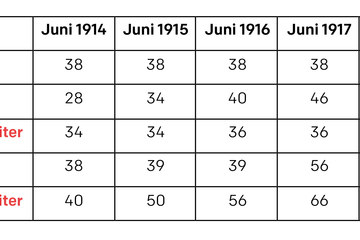Schumpeter’s imperialism theory: Did big business press for war?
As in most of the colonies that Germany, Austria Hungary's ally, had occupied before the First World War, there was, to put it bluntly, little to be obtained commercially in Bosnia-Herzegovina. From an economic point of point of view, how much sense did such conquests make? Did commercial considerations play any major role at all in connection with the outbreak of war?






